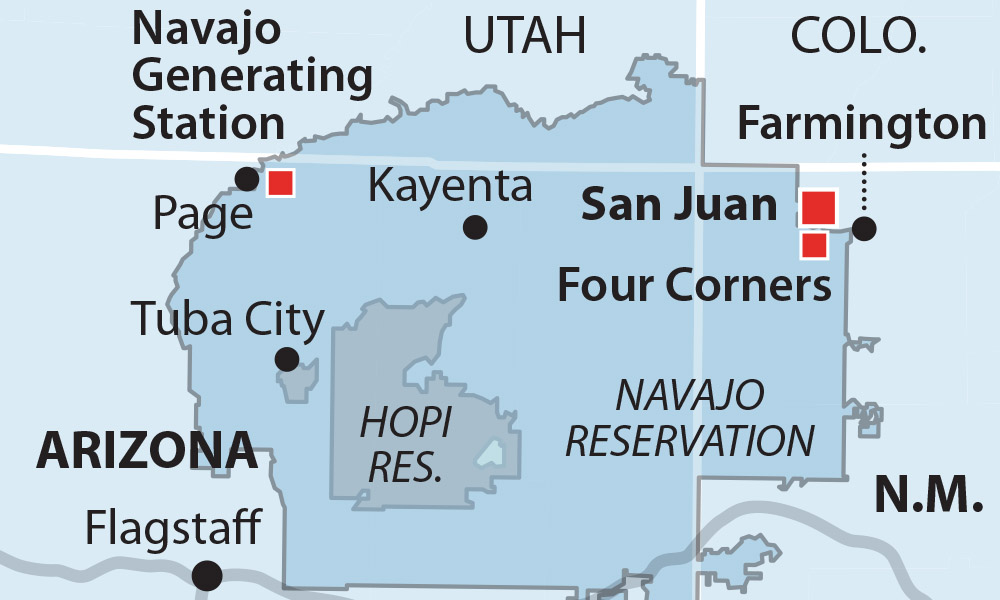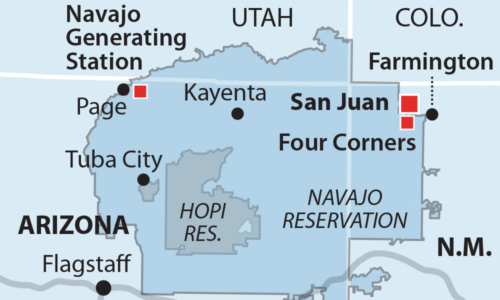IEEFA U.S.: Bill to incentivize federal reinvestment in tribal regions of Arizona suggests a model for coalfield communities nationally

 Sept. 29, 2019 (IEEFA) — A bill to encourage federal reinvestment in communities hurt by the closure of the Navajo Generating Station (NGS)-Kayenta Mine complex in Arizona suggests a model that could work for coalfield communities nationally, concludes a report published today by the Institute for Energy Economics and Financial Analysis.
Sept. 29, 2019 (IEEFA) — A bill to encourage federal reinvestment in communities hurt by the closure of the Navajo Generating Station (NGS)-Kayenta Mine complex in Arizona suggests a model that could work for coalfield communities nationally, concludes a report published today by the Institute for Energy Economics and Financial Analysis.
The report—Bill to Spark Federal Post-Coal Reinvestment in Arizona Tribal Communities Is a Good Beginning—lauds legislation proposed last week by Rep. Tom O’Halleran calling for federal economic development and revenue replacement in the wake of the collapse of northern Arizona’s coal industry.
The report notes that the O’Halleran bill, called the PROMISE Act (Providing Recovery Opportunities & Mitigating Industry’s Shifting Economics), would create several ways for the government to reinvest in Hopi and Navajo communities that are being hit hard economically across the board by this year’s plant and mine closure. It is modeled loosely after programs run by the Department of Defense Office of Economic Adjustment, which was generously funded through congressional appropriations to mitigate the local impacts of base closures nationally beginning in the 1980s.
“The bill, importantly, does not call on Congress to appropriate funding for the initiative, leaving it mainly to the Interior Department to support the program ‘to the extent funds are made available,’” the report notes. “It does, however, appear to leave the door open for congressional appropriations, which are likely to prove crucial to the success of the initiative.”
The legislation highlights the fact that NGS and Kayenta came into existence mostly through federal policy actions and that the federal government owns a stake in the soon-to-be-closed NGS, “implying—correctly—that federal transition support is simultaneously appropriate and obligatory,” the report states.
The bill advocates direct payments to tribal and local governments to compensate for losses due to the closure of the plant and the mine under a schedule that would replace 80 percent of lost revenue initially, reducing by 10 percentage points annually over the life of the seven-year program, to 20 percent in the final year.
The legislation would:
- Require an Interior Department study on the potential reuse of the NGS site after its closure in December;
- Provide unspecified federal funding for “adjustment and diversification assistance” requiring only a 10 percent match from local, tribal or state agencies;
- Offer a 70 percent federal match on local infrastructure projects;
- Call for the forming of a committee made up of federal cabinet-level officials, tribal representatives, and municipal, union and state leaders to oversee the initiative;
- Create a new Department of the Interior Office of Economic Adjustment to administer the program.
“The bill could very well serve as a template for broader bipartisan legislation supporting federal reinvestment in coalfield communities nationally, including in Kentucky and West Virginia and the Powder River Basin of Montana and Wyoming, regions that are taking disproportionately heavy casualties as power-generation demand for coal recedes and local coal-based economies adjust to new market realities,” the report states.
The bill is co-sponsored by three other members of Arizona’s congressional delegation.
Full report: Bill to Spark Federal Post-Coal Reinvestment in Arizona Tribal Communities Is a Good Beginning
Author contact:
Karl Cates [email protected] (917) 439-8225
Media contact:
Vivienne Heston [email protected] (914) 439-8921
About IEEFA:
The Institute for Energy Economics and Financial Analysis (IEEFA) conducts global research and analyses on financial and economic issues related to energy and the environment. The Institute’s mission is to accelerate the transition to a diverse, sustainable and profitable energy economy.
RELATED POSTS:
IEEFA U.S.: Powder River Basin mines may reopen, but the bad news is far from over












